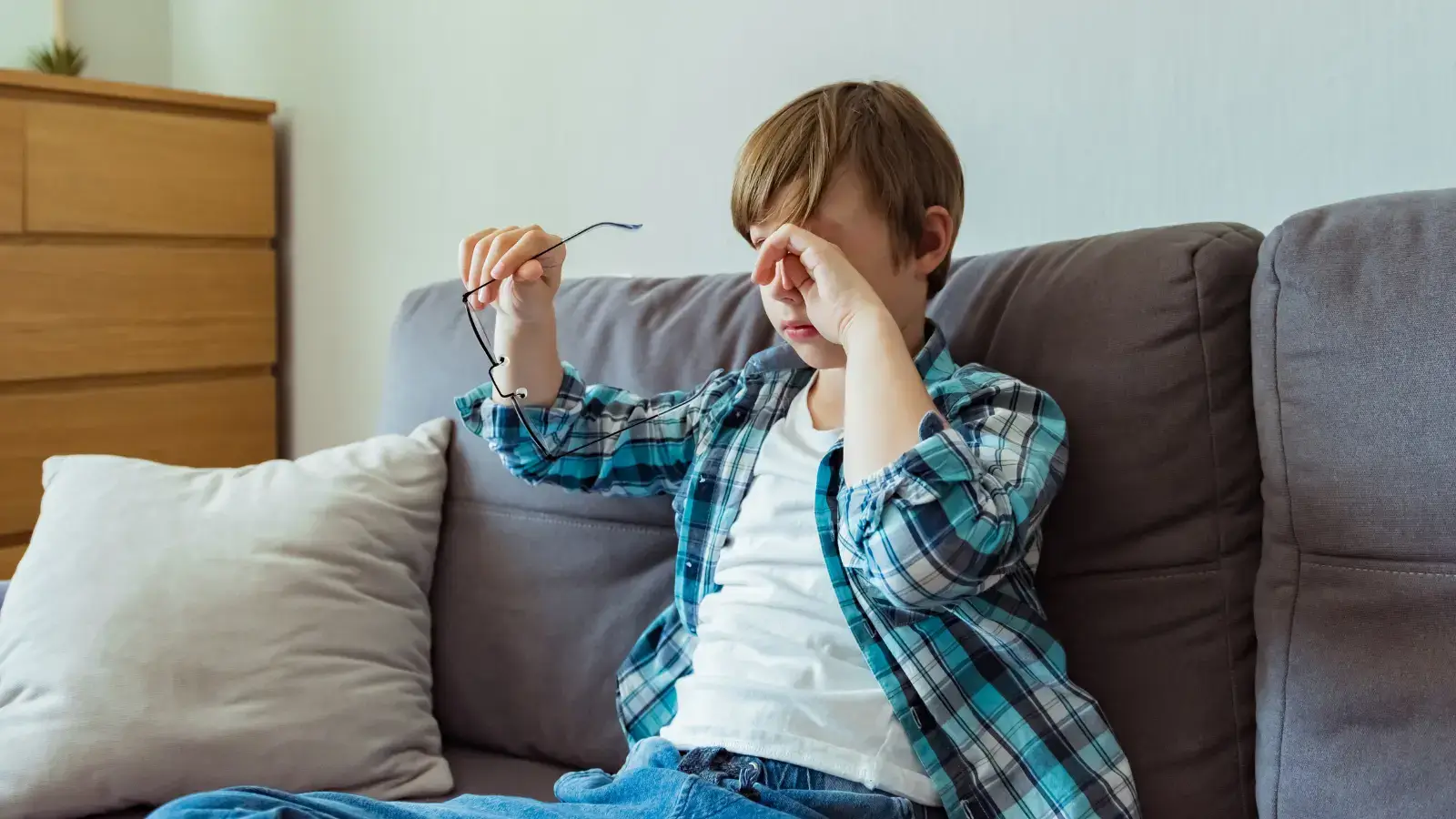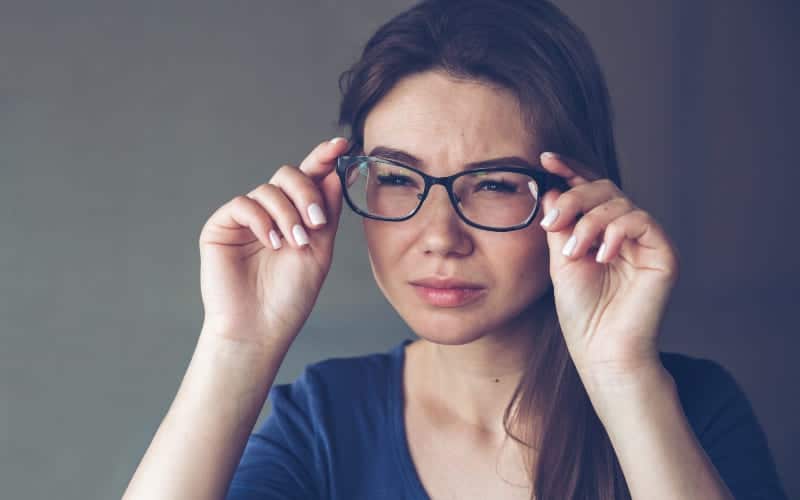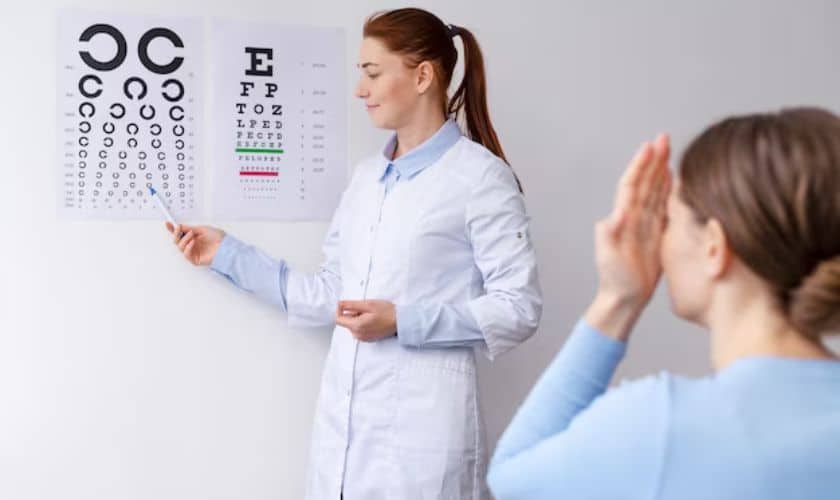Browse Eyewear

Myopia, also known as nearsightedness, is a common eye condition that affects millions of people around the world. It can cause blurred vision when looking at distant objects and usually requires corrective lenses or surgery. Unfortunately, myopia increases the risk of blindness in later years if not treated correctly and regularly monitored by an eye care professional. This article explores the link between myopia and blindness, detailing what myopia is, its causes, treatments available, and how to prevent it from leading to more severe vision problems like blindness.
What Is Myopia?
Myopia is a refractive error that affects millions of people around the world. It occurs when the eyeball becomes too long to the focusing power of the cornea and lens, which results in blurred vision of distant objects while near objects may appear straightforward. It is usually corrected with glasses or contact lenses, but surgery may also be required if myopia does not improve with other treatments.
Symptoms of Myopia
Myopia can cause blurred vision when looking at distant objects and difficulty seeing things up close. Other symptoms include eye strain, headaches, squinting, and fatigue due to overusing the eyes to focus on near objects.
Causes of Myopia
The exact cause of myopia is unknown; however, it is believed to have a genetic component, as it often runs in families. Additionally, environmental factors such as too much time spent reading or using computers can also contribute to myopia.
How Is Myopia Diagnosed?
Myopia is typically diagnosed during a comprehensive eye exam. During this exam, the patient will be asked to read letters on a chart from far away which can help determine if myopia is present. A refraction test may also be performed, which measures how light is bent when it enters the eye to assess prescription lenses needed for vision correction.
Treatment Options For Myopia
Myopia can usually be treated with glasses or contact lenses, but more severe cases may require surgery to correct the problem. Additionally, myopia can sometimes improve with age as the eyeball stops growing and becomes shorter.
Glasses and Contact Lenses
Glasses and contact lenses are the most common treatment for myopia. They help to refocus light that has been bent incorrectly to sharpen vision. Also, specialty contact lenses are available, which can slow myopia from progressing by changing the cornea’s curvature.
Refractive Surgery
Refractive surgery is an option for those with myopia who do not want to wear glasses or contacts, although it is not suitable for everyone. The surgery reshapes the cornea to correct myopia and improve vision. It is important to note that this procedure involves a certain amount of risk, so those considering refractive surgery should discuss all possible risks and benefits with their doctor.
Orthokeratology
Orthokeratology, also known as corneal refractive therapy (CRT), is a type of myopia treatment that involves wearing special contact lenses at night, which reshape the eye to reduce myopic prescription during waking hours without the need for glasses or contacts. This type of myopia treatment is more successful when combined with other myopia treatments, such as orthoptics and vision therapy.
Exploring The Link Between Myopia And Blindness
Myopia can lead to more severe vision problems, such as cataracts and glaucoma, if left untreated or uncontrolled. These conditions can lead to vision loss and even blindness. As myopia worsens, the risk of these complications also increases, so it is essential to properly manage myopia to reduce the risk of further vision problems.
Prevention Is The Best Treatment
Early detection and immediate treatment are the best way to prevent myopia from leading to more severe eye conditions. Regular comprehensive eye exams are essential for detecting myopia in its early stages and identifying any underlying conditions that may contribute to myopia progressions, such as high blood pressure or diabetes. Additionally, wearing proper protective eyewear outdoors can help protect against UV rays that may aggravate myopic conditions.
Lifestyle Changes Can Help
Making lifestyle changes such as limiting screen time and taking regular breaks when using the computer or reading can help reduce myopia progression. Regular exercise and a healthy diet rich in vitamins and minerals can help improve overall vision health.
Seek Professional Help
If myopia is detected early enough, it may be possible to slow its progression with myopia control treatments such as orthokeratology or specialty contact lenses. It is crucial to seek professional advice from an eye doctor if myopic symptoms are present to determine the best course of treatment.
The Final Thought
Myopia is a common vision problem that affects millions of people worldwide and can lead to more severe eye conditions if left untreated or uncontrolled. It is essential to have regular comprehensive eye exams to detect myopia early and take measures to prevent it from worsening. Making lifestyle changes such as limiting screen time, wearing proper protective eyewear, and eating a healthy diet can also help reduce myopia progression. Additionally, myopic treatments such as glasses and contact lenses, refractive surgery, and orthokeratology may be used with myopia control treatments to slow myopia from progressing.
Yes, myopia can lead to more severe vision problems, such as cataracts and glaucoma, if left untreated or uncontrolled, which can eventually lead to vision loss and even blindness.
Regular comprehensive eye exams are essential for detecting myopia in its early stages and identifying any underlying conditions that may contribute to myopia progression. Additionally, lifestyle changes such as limiting screen time, taking regular breaks when using the computer or reading, wearing proper protective eyewear outdoors, exercising regularly, and eating a healthy diet rich in vitamins and minerals can help reduce myopia progression.
Myopic treatments such as glasses and contact lenses, refractive surgery, and orthokeratology may be combined with myopia control treatments to slow myopia from progressing. It is essential to seek professional advice from an eye doctor if myopic symptoms are present to determine the best course of treatment.



